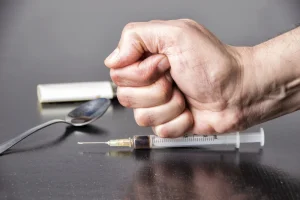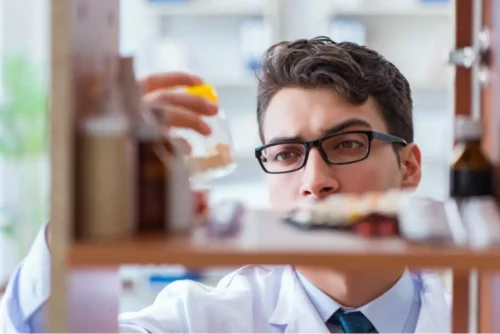
In certain cases, it may be necessary first to develop the concept of the discrepancy by raising the adolescent’s awareness of the personal consequences related to alcohol use. The clinician’s role is to communicate great respect for the adolescent and family. He or she should be a blend of support person and knowledgeable consultant for the benefit of the patient. The adolescent’s and family member’s freedom of choice, direction and responsibility for change are respected. It is important to communicate to the adolescent that another person’s drinking or drug use is not their fault and that they cannot be responsible for changing them. However, they are responsible for and can change their own drinking behavior.
Support Self-Efficacy
Some teenagers also experiment with legal non-alcohol substances, such as over-the-counter cold medicine, or substances with less attached social stigma, such as weed, for these same reasons. Typically, teens choose these alcohol alternatives because they believe they are safer, more readily available, or less likely to be detected than alcohol. As a parent, you may have a teen who has tried alcohol, considered trying it, or who may be misusing alcohol. You are not alone, and there are many things you can do to help your teen, whether they have never used alcohol or need alcohol use disorder treatment. These patterns of behavior with interpersonal relationships can prevent the adult child from appropriately developing positive relationships. These effects can mean that a teenager doesn’t do as well in school, resulting in lifelong negative impact on their potential.
Factors Contributing to Adolescent Alcohol Use
Research has continually shown that certain genetic factors may play a role in how vulnerable a person is to developing substance use disorders. The term is known as predisposition and it is related to a person’s natural tendency to struggle with certain problems. The link between alcoholism and genetics is undeniable; however, research has shown that genes are responsible for about half of the risk for a person developing alcohol use disorder. This means that even if a teenager is predisposed to teenage alcoholism struggling with teenage alcoholism due to their genetics, other factors can play a role in preventing their abuse of alcohol. For teenagers, binge drinking can be defined as consuming four or more drinks during a two-hour period for girls and five or more drinks for boys. Since the majority of teen drinking occurs as binge drinking, it appears that teenagers are not simply experimenting with a few sips of alcohol; instead, they are consuming multiple alcoholic beverages and becoming intoxicated.

Helping children make friends: What parents can do
Alcohol in the stomach and intestine continues to enter the bloodstream and to circulate throughout your body. A .gov website belongs to an official government organization in the United States. While genetics can play a role, there are also other important factors affecting the difference between abstinence or alcoholism. Join our supportive sober community where each day becomes a step towards personal growth and lasting positive change.
- More than one-half (58%) of 10th-graders and more than one-third (36%) of 8th-graders report having consumed alcohol at some point in their lives, and more than one-third of 10th-graders (37%) and one of six 8th-graders (16%) report having been drunk in the past.
- According to underage drinking statistics reported by the Centers for Disease Control and Prevention (CDC), 30% of high schoolers consumed alcohol in the past month.
- You can help by fostering a relationship with your child where they feel that they can be open and honest with you, rather than being immediately disciplined.
Because the adolescent years are a time of development, teens’ bodies are less able to process alcohol. That means they have a tendency to get drunk quicker and stay drunk longer than older drinkers. Allow your teen to talk and open up about their thoughts and opinions, and try to listen without being critical, disapproving, or judgmental. They want to feel heard and understood, so even when you don’t like or agree with what they’re saying, it’s important to withhold blame and criticism.
You’ve noted the steep drop-off in their schoolwork, abrupt changes in their behavior, and the loss of interest in their former hobbies and interests. Attempting to dive straight in to a discussion about drinking may be a quick way to trigger an unpleasant fight. A better tactic is to find an area of common ground, such as sports or movies. Once you’re able to peacefully discuss a common interest, it may be easier to get your teen talking about the more sensitive issue of alcohol use.
- If a teenager’s environment is constantly highlighting reasons for underage drinking, they will be far more likely to partake and will be more at risk for teen alcohol abuse.
- Doctors diagnose alcohol use disorder (AUD) when a person has two or more of the symptoms listed below.
- MentalHealth.com is a health technology company guiding people towards self-understanding and connection.
- And sooner is better than later — at age 12, only 1 in 10 children say they have tried alcohol, but by age 15, 1 in 2 have tried it.
- Alcohol use can affect a teen’s mood and personality, trigger teen depression, anxiety, or suicidal thoughts/ideation, and lead to an increase in risky behavior such as driving while impaired, having unprotected sex, fighting, stealing, or skipping school.
- More telling than physical signs may be the indication of dysfunctional behaviors.





